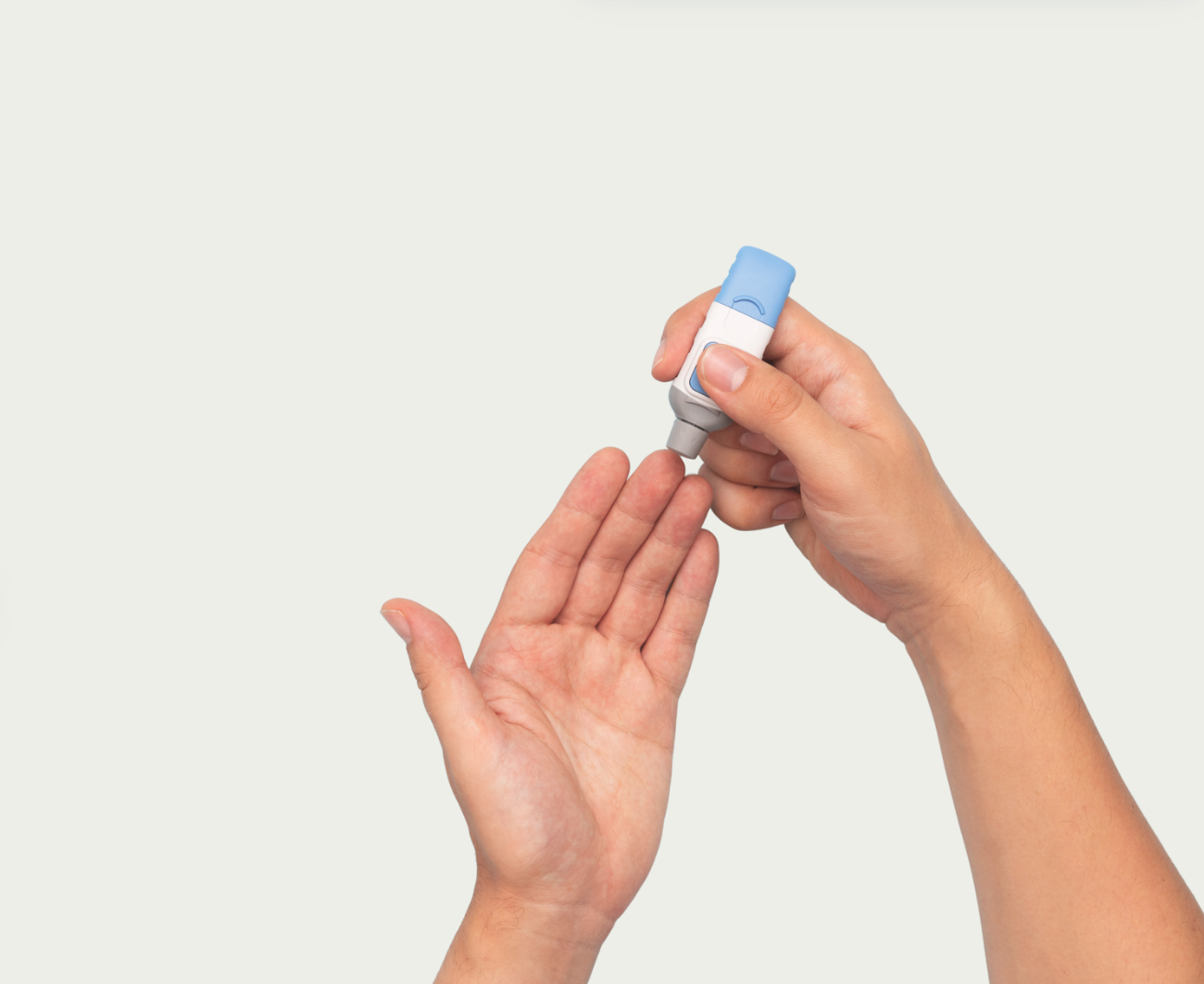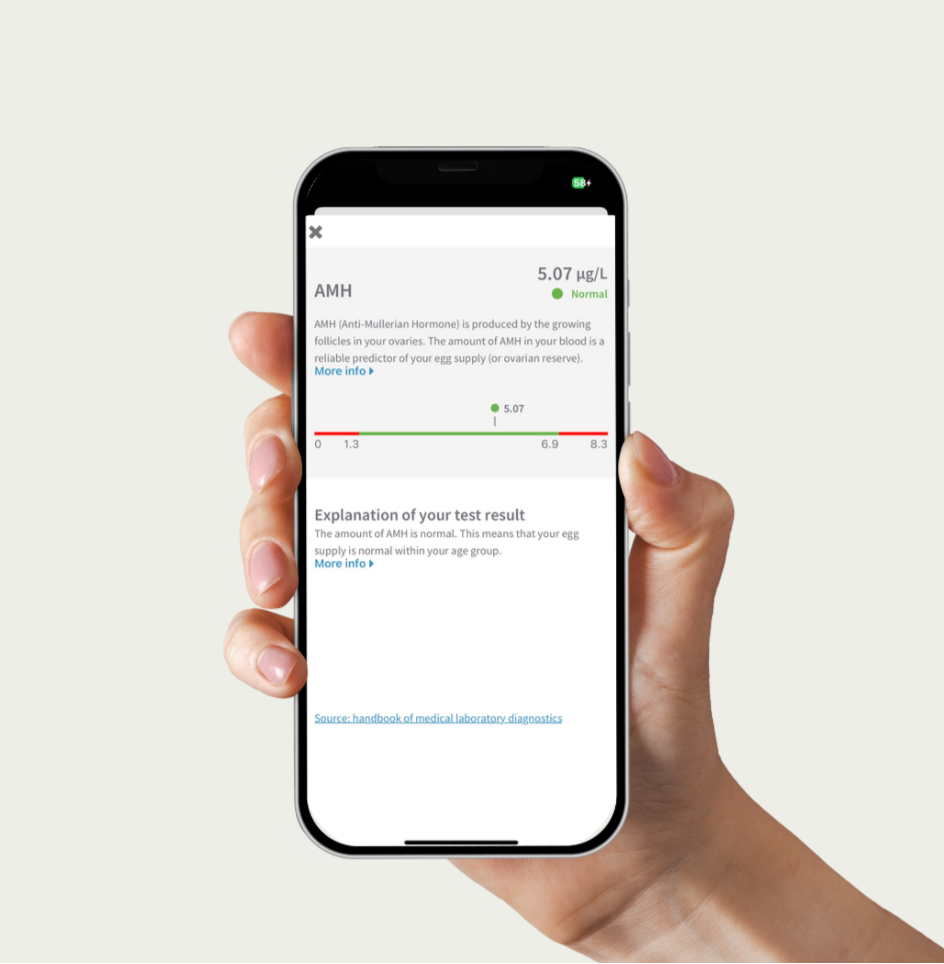Gain valuable insights to make informed plans.
No test, ours included, can tell you for sure whether you’ll be able to get pregnant or not. Fertility is complex, and there’s no absolute predictor of fertility or infertility.
Our test, developed with our certified diagnostic lab, gives you a personal hormone profile based on clinical science. It doesn’t provide a yes or no answer, but a snapshot of your potential risks.
And knowing these risks early means you have more time, more options, and more control.

Why finger-prick testing works
Your fingertip has many small blood vessels, making it perfect for collecting capillary blood. This small sample is enough for accurate lab analysis, and studies show that finger-prick blood is just as reliable as a traditional blood draw when it comes to hormone testing.
The method has been medically validated and is widely used in diagnostic testing.

Why you should trust our lab
We work with a certified laboratory that is ISO 9001 & ISO 13485 certified, ensuring your sample is handled with the highest level of care.
Upon arrival, your sample is checked for temperature, volume and transit time and all results are reviewed by our clinical chemist.
What we measure
Anti-Mullerian Hormone (AMH)
AMH gives a snapshot of your current fertility potential- how many eggs your body has to work with.
It’s useful if you’re considering freezing your eggs, delaying pregnancy, or just want to know where you stand.
It also helps doctors understand how your body might respond to fertility medications.
Thyroid Stimulating Hormone (TSH)
If your TSH is too high or too low, it can disrupt your cycle, ovulation, and hormone balance, making it harder to get pregnant.
Your thyroid works harder during pregnancy. It's important to make sure it's functioning well before and during pregnancy to support the baby’s development.
Follicle Stimulating Hormone (FSH)
Higher than normal FSH levels can be a sign that your ovaries are working harder to produce eggs- often meaning a lower egg count.
Along with AMH, FSH helps give a snapshot of how many eggs you have left.
Abnormal FSH levels can point to premature ovarian insufficiency (POI), menopause / perimenopause or ovulation problems.
Testosterone
Elevated testosterone levels can be linked to conditions like PCOS, which may affect ovulation and fertility.
Too much testosterone can disrupt ovulation and periods, which can make it harder to get pregnant.
Luteinizing Hormone (LH)
People with Polycystic Ovary Syndrome (PCOS) often have consistently high LH levels, which can disrupt ovulation.
High or low LH levels can give clues about hormonal imbalances, premature ovarian insufficiency (POI), or other fertility-related conditions.
Are your hormones healthy?
Don't wait until it's too late to get informed about your fertility health.

Our report and medical team
The report will show you any hormonal imbalances, potential risks and any potential reproductive and thyroid conditions that you should look into.
You now also have the ability to book a 30min appointment with our doctor to talk about your results, receive personalised recommendations and ask any pressing questions.



